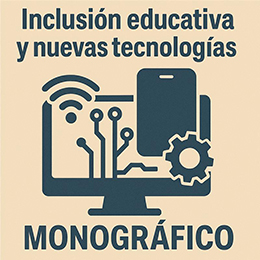MOOCs. A new model of e-learning in the current educational system
DOI:
https://doi.org/10.51302/tce.2015.35Keywords:
e-learning, MOOCs, ICT, Tertiary Education SuperiorAbstract
Education is framed within the characteristics of the current society, where internet is the means through which new educational approaches are being implemented. MOOCs are thus being established as a new way of learning in the current context, especially in tertiary education. This work addresses this new term to analyze its meaning, features and main virtual platforms providing them, on the one hand; and the issues needed to be solved in order to set up a new e-learning model, on the other hand. It can be concluded that this new model must be fully compatible with the planification of the education policy and curricular analysis.
Downloads
References
Anderson, T. y Dron, J. [2011]: «Three generations of distance education pedagogy», The International Review in Open & Distance Learning, 12 (3). Disponible en: http://www.irrodl.org/index.php/irrodl/article/view/890/1663
Area, M. y Ribeiro, M.T. [2012]: «De lo sólido a lo líquido: las nuevas alfabetizaciones ante los cambios culturales de la Web 2.0», Comunicar, XIX (38), págs. 13-20. doi: https://doi.org/10.3916/C38-2011-02-01.
Bell, F. [2011]: «Connectivism: its place in theory-informed research and innovation in technology-enabled learning», International Review of Research in Open and Distributed Learning, 12 (3). Disponible en: http://www.irrodl.org/index.php/irrodl/article/view/902/1664
Cormier, D. y Siemens, G. [2010]:«Through the open door: open courses as research, learning and engagement», Educause Review, 45 (4), págs. 30-39.
Dewaard, I. et ál. [2011]. «Using mlearning and MOOCs to understand chaos, emergence, and complexity in education», The International Review of Research in Open and Distance Learning,12 (7), págs. 94-115. Disponible en: http://www.irrodl.org/index.php/irrodl/article/view/1046/2043
Fernández-Pampillón, A. [2009]: «Las plataformas e-learning para la enseñanza y el aprendizaje universitario en internet», Las plataformas de aprendizaje. Del mito a la realidad, Madrid, Biblioteca Nueva, págs. 45-73. Disponible en: http://eprints.ucm.es/10682/1/capituloE_learning.pdf
Hill, P. [2013, febrero, 12]: The most thorough description (to date) of university experience with MOOC.[Mensaje en blog]. Disponible en: http://mfeldstein.com/the-most-thorough-description-to-date-of-university-experience-with-mooc/
Johnson, M. W. [2013, abril, 24]: Forms of knowledge and forms of interaction: some thinking about MOOCs. [Mensaje en blog]. Disponible en: http://dailyimprovisation.blogspot.com.es/2013/04/forms-of-knowledge-and-forms-of.html
Martín, O.; González, F. y García, M.a A. [2013]: «Propuesta de evaluación de la calidad de los MOOC a partir de la Guía Afortic», Campus Virtuales, (1), págs. 124-132. Disponible en: http://www.revistacampusvirtuales.es/images/volIInum01/revista_campus_virtuales_01_ii-art10.pdf
Pérez, M. A.; Fandos, M. y Aguaded, J. I. [2009]: «¿Tiene sentido la educación en medios en un mundo globalizado?», Cuestiones Pedagógicas, 19, págs.301-317.
Purser, E.; Towndrow, A. y Aranguiz, A. [2013]: «Realising the potencial of peer-to-peer learning: taming a MOOC with social media», eLearning Papers, 33.Disponible en: http://elearningeuropa.info/sites/de-fault/files/asset/From-field_33_2.pdf
Ravenscroft, A. [2011]: «Dialogue and connectivism:a new approach to understanding and promoting dialogue-rich networked learning», International Review of Research in Open and Distance Learning,12 (3). Disponible en: http://www.irrodl.org/indexphp/irrodl/article/view/934/1676
Rodríguez, C. O. [2012]: «MOOCs and the AI-Stanford like courses: two successful and distinct course formats for massive open online courses», European Journal of Open, Distance and E-Learning, 1. Disponible en: http://www.eurodl.org/?p=Special&sp=init2&article=516
Roig Vila, R.; Mengual Andrés, S. y Suárez Guerrero, C.[2014]: «Evaluación de la calidad pedagógica de los MOOC», Profesorado. Revista de currículum y formación del profesorado, 18 (1), págs. 27-41. Disponible en: http://www.ugr.es/~recfpro/rev181ART2.pdf
Sánchez, M. [2013]: «Los MOOC como ecosistema para el desarrollo de prácticas y culturas digitales»,Revista Científica de Tecnología Educativa. Campus Virtuales, 1 (2), págs. 112-123.
Santamaría, F. [2013, marzo, 9]: Propuestas y modelos de negocio para la sostenibilidad de los MOOC.[Mensaje en Blog]. Disponible en: http://fernandosantamaria.com/blog/2013/03/propuestas-y-modelos-de-negocio-para-la-sostenibilidad-de-los-moocs/
Siemens, G. [2005]: «Connectivism: a learning theory for the digital age», International Journal of Instructional Technology and Distance Learning, 2 (1).
Zapata-Ros, M. [2013]: MOOC, una visión crítica y una alternativa complementaria: La individualización del aprendizaje y de la ayuda pedagógica. [Preprint].Disponible en: http://eprints.rclis.org/view/creators/Zapata-Ros=3AMiguel=3A=3A.html
Downloads
Published
How to Cite
Issue
Section
License
Copyright (c) 2015 Rosabel Roig Vila, Serezade Fernández Rico

This work is licensed under a Creative Commons Attribution-NonCommercial-NoDerivatives 4.0 International License.


























